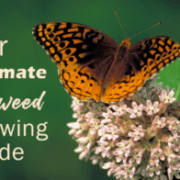When the Garden Stops Making Free Food!
Heirloom Vegetable Seeds
by Sandy Swegel
The hard freeze is upon us here in Colorado. We’re scurrying to save and process the last of the harvest. Counters are full of green tomatoes. Winter squash line the shelves of the mudroom. But fresh organic food coming in from the garden is dwindling. The time of buckets of lemon cucumbers in the walkway is over. (How does that plant produce so much fruit?) Despite good intentions of growing most of our own food, it is time to return to regular shopping at the grocery store when the garden stops making free food.
Paying for food after getting all those zucchinis for free all summer can be a little depressing—especially if you end up paying $1.50 for a tiny little zucchini. For a while, I thought I was just getting old and turning into my Depression-baby grandmother who always complained about things being so expensive. Even though she had money in the bank and a good social security check coming, later in life she took to having just two little chicken wings for dinner. That’s what I felt like going shopping this week as I bought just one onion, one squash and two pears when I went shopping. Prices seemed so high.
Turns out prices really are high. It’s not reported much on the news, but the cost of living is increasing and food prices are worse than the general economy. Since 2006, the consumer price index has risen 14% but the price of food has gone up 20% in the past six years. Ouch.
So what do you do? Besides planting even more vegetables and fruit next year, you have to watch what you buy. And you need to remember to keep buying organic produce even though it is relatively more expensive.
Prices are higher now than when you bought groceries last winter. But don’t compensate by eating pesticide-contaminated food. The Environmental Working Group puts out a list every year of the foods that have the most pesticides even after they have been thoroughly washed. They call the worst ones the “Dirty Dozen.” Most of our staple foods are on the dirty list: apples, celery, kale (!), cucumbers, and zucchini. If you do have to save money this winter and buying non-organic food seems the only way to go, at least choose foods least likely to be full of pesticides…the items on their “Clean Fifteen” list.
And grow more food next summer!
Dirty Dozen: http://www.ewg.org/foodnews/ Data on food prices: http://www.ers.usda.gov/amber-waves/2013-august/price-inflation-for-food-outpacing-many-other-spending-categories.aspx#.Um5XtvmsgWc



Leave a Reply
Want to join the discussion?Feel free to contribute!